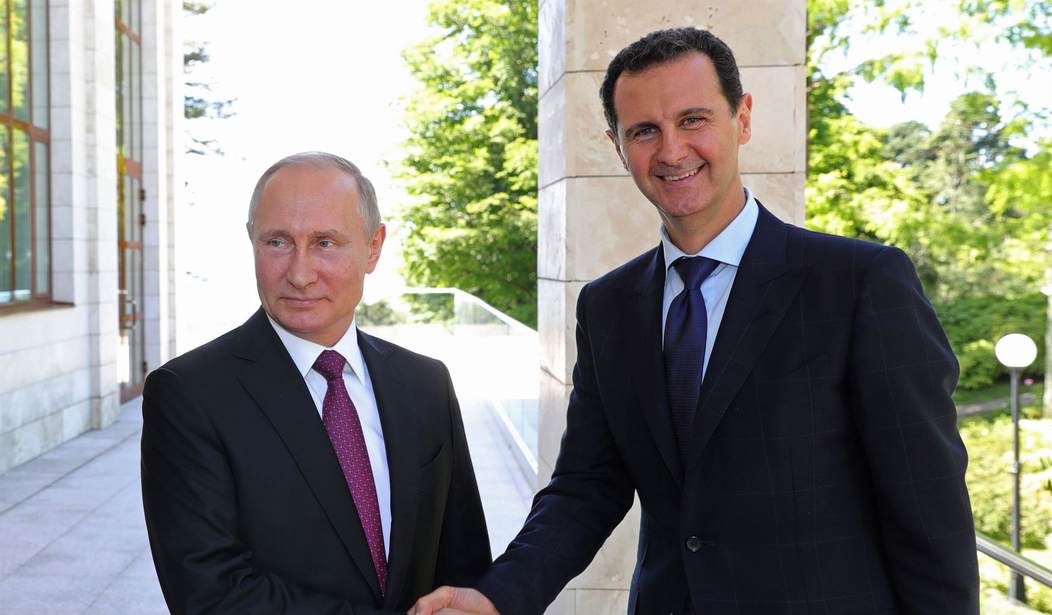Closing the tabs ...
Islamist rebel leader Abu Mohammed al-Jawlani swapped out his military fatigues for a suit on Monday, positioning himself as a statesman who can unite Syria and responsibly manage relations with its neighbors.
Sitting in the cabinet building of the capital his forces seized this month, Jawlani told foreign journalists that Syria’s new government plans to launch a process to overhaul the country’s constitution and institutions. He cautioned, however, that it would take time.
“People have big ambitions, but today we must think realistically, because Syria has many problems, and they won’t be solved with a magic wand,” Jawlani said. “It needs patience.”
Ed: Well, we'll see. Lots of revolutionaries begin by promising rational government and justice. They end up being the same as the old boss. Ask the Cubans about that, at least once you can get them out of Cuba. Or the Iranians. Or the Afghanis.
===
Jawlani
— Jamīl Sūrī (@LevantJourno) December 17, 2024
- Foriegn Fighters who participated in the revolution can be given citizenship
- the revolution (jihad) will be contained within the borders of Syria
- #Syria will no longer be used to attack Israel (specifically) and in general, any other countrypic.twitter.com/5gsR00VEJ2
===
When the rebels conquered Aleppo late last month, followed by Homs and ultimately the capital Damascus, they distributed bread and children’s gifts in Christian neighborhoods, telling residents they had nothing to fear.
Yet, in a sign of their sense of foreboding, some Christian store owners are refraining from selling alcohol, which Islamists consider sinful, or are doing so discreetly. Residents of Homs say armed men tried to shut liquor stores and remove crosses from Christians’ cars. Those appear to be isolated incidents so far, and contrary to the stated policy of the country’s newly empowered leaders.
“We are still in the province of promises,” an Armenian Christian businessman from Aleppo said. “Is what’s happening just propaganda to gain trust abroad and maybe later it changes, or is this something real? We need time.”
Ed: I predict that it will not go well for Christians under an Islamist-oriented rule. It's not impossible, but Islamists act to suppress all other points of view. Having Jawlani don a suit rather than robes is not much of a basis for hope of religious tolerance.
===
Ahmad al-Shar’a also met with Syrian Druze leaders today.
— Aaron Y. Zelin (@azelin) December 16, 2024
He told them “Syria must remain united and there must be a social contract between the state and sects to ensure social justice”
Jawlani first engaged the Druze community in Idlib a couple years ago. pic.twitter.com/vtfwqEAyff
Ed: The Druze communities near the Israeli border want to be annexed into Israel. If the Jawlani government is willing to abide by its claims today, perhaps it would be better to allow the Druze to control the territory nearest Israel as a reliable buffer. But that's only if Jawlani is serious about leaving Israel alone.
===
Arab countries had for years been moving toward normalizing relations with Mr. al-Assad, despite his brutal treatment of his people, and Western countries, while hitting him with heavy sanctions, had grudgingly come to accept that he was there to stay. His overthrow scrambled that calculus, forcing foreign powers to decide how to deal with a largely unknown quantity that many of them had shunned as extremists for years.
Many of those powers, including the United States, European countries and Turkey, say they want to see a stable, unified Syria with an inclusive government that respects the rights of Syria’s minorities, including Shiite Muslims, Druse, Christians of various sects and Alawites, the Shiite offshoot sect that the Assad family and many of its strongest supporters belongs to.
Foreign countries have the leverage to push Syria’s new leadership toward that vision. To unlock greater flows of humanitarian aid, get suffocating economic sanctions lifted and earn international legitimacy — all required for a crippled, impoverished Syria to stabilize and rebuild — Hayat Tahrir al-Sham will need other countries to remove its designation as a terrorist group.
Ed: Either that or they can hold free and fair elections, although that may take a while. HTS has a bad track record, bad enough to where they need to prove that they're serious about governance rather than terrorism in the long run. Any money that flows right now will send the wrong message.
===
With Iran’s proxy empire falling apart and the fall of Assad’s regime, all eyes will be on Tehran’s other terror proxy: the Houthis.
— Morgan Ortagus (@MorganOrtagus) December 16, 2024
Their attacks in the Red Sea would end right now if the White House reimposed Trump-era Iran policies. pic.twitter.com/f9Kb5i7UyR
===-
Toppled Syrian dictator Bashar al-Assad airlifted $250m in cash to Moscow between 2018-19, the Financial Times (FT) reported on Dec. 15.
Quoting financial records seen by the newspaper, the FT said Syria's central bank flew nearly two tonnes of $100 bills and €500 notes into the country, which were then deposited in sanctioned Russian banks.
The outlet said the transfers occurred at a time when Syria was heavily indebted to Russia for its military support, and while Assad's relatives were buying up assets in Russia including luxury apartments.
Ed: Looks like a wise investment now!
===
Trump: "I can say that Assad was a butcher, what he did to children...Obama drew the red line in the sand, then he refused to honor what he did.
— Gabriel Noronha (@GLNoronha) December 16, 2024
Assad killed many more children after that and Obama did nothing.
But I did." pic.twitter.com/Yf4UqHrx43
Ed: Trump also advised that the Syrians need to look forward rather than backward and forget about Assad in Moscow. But how long can they afford to do that if Assad starts working to return?








Join the conversation as a VIP Member